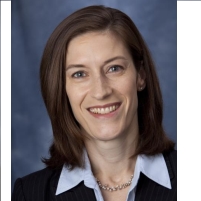Obama Nominees to Privacy and Civil Liberties Board Finally Get a Hearing
Monday, April 23, 2012
 Rachel Brand
Rachel Brand
Dormant for four years, a federal watchdog charged with preventing anti-terrorism-related abuses of power may finally come back to life.
The Privacy and Civil Liberties Oversight Board (PCLOB), created in 2004 at the urging of the 9/11 Commission, is tasked with overseeing privacy-related concerns involving such activities as airport screening, Internet use and law enforcement use of tracking devices. It did little during the George W. Bush administration due to political interference from the White House. And until recently it was also entirely ignored by President Barack Obama, who finally nominated the last of the five members to the vacant board in December 2011.
Three of the nominees are Democrats: James Dempsey, an executive with the Center for Democracy & Technology; Patricia Wald, a former federal judge for the DC Circuit; and David Medine, an attorney-fellow at the U.S. Securities and Exchange Commission and a former WilmerHale partner chosen to chair the board.
The two Republican nominees are Elisebeth Collins Cook, a former Department of Justice lawyer who also works for WilmerHale, and Rachel Brand, chief counsel for regulatory litigation for the U.S. Chamber of Commerce, who also used to work at WilmerHale.
The Senate Judiciary Committee this week grilled the five nominees during their confirmation hearing.
“All of the candidates seemed reluctant Wednesday to comment on Obama administration policies that most trouble civil libertarians,” reported Adam Klasfeld of Courthouse News Service. Zach Rausnitz of Fierce Homeland Security put it even more politely, noting that “The nominees were light on specifics when committee members asked for their positions on various issues.”
That was a bit of an understatement. Sen. Charles Grassley (R-Iowa) tried to get them to express an opinion about the CIA’s assassination program, but without success. Sen. Al Franken (D-Minnesota) pressed the nominees about domestic spy drones, facial-recognition technology, warrantless cell phone surveillance and immunity for private companies that share information with the military. No luck.
Franken zeroed in on Rachel Brand, who was assistant attorney general for the Office of Legal Policy at the Department of Justice during George W. Bush’s second term as president. Brand publically defended Bush’s use of National Security Letters for terrorism investigations even though the Office of Inspector General later determined that they had been used to violate FBI policy approximately 85,000 times. Brand claimed that she did not know the intent of the letters was being abused.
-David Wallechinsky, Noel Brinkerhoff
To Learn More:
Hearing Strains to Revive Addled Privacy Watchdog (by Adam Klasfeld, Courthouse News Service)
PCLOB Nominees Ready To Hear the Government's Case for Security Measures (by Zach Rausnitz, Fierce Homeland Security)
Obama Finally Starts to Activate Privacy Oversight Board (by Noel Brinkerhoff, AllGov)
The Nine 9/11 Commission Recommendations Still Unmet (by David Wallechinsky and Noel Brinkerhoff, AllGov)
White House Privacy Oversight Board Disappears (by Noel Brinkerhoff, AllGov)
- Top Stories
- Unusual News
- Where is the Money Going?
- Controversies
- U.S. and the World
- Appointments and Resignations
- Latest News
- Trump Renames National Football League National Trump League
- Trump to Stop Deportations If…
- Trump Denounces World Series
- What If China Invaded the United States?
- Donald Trump Has a Mental Health Problem and It Has a Name






Comments